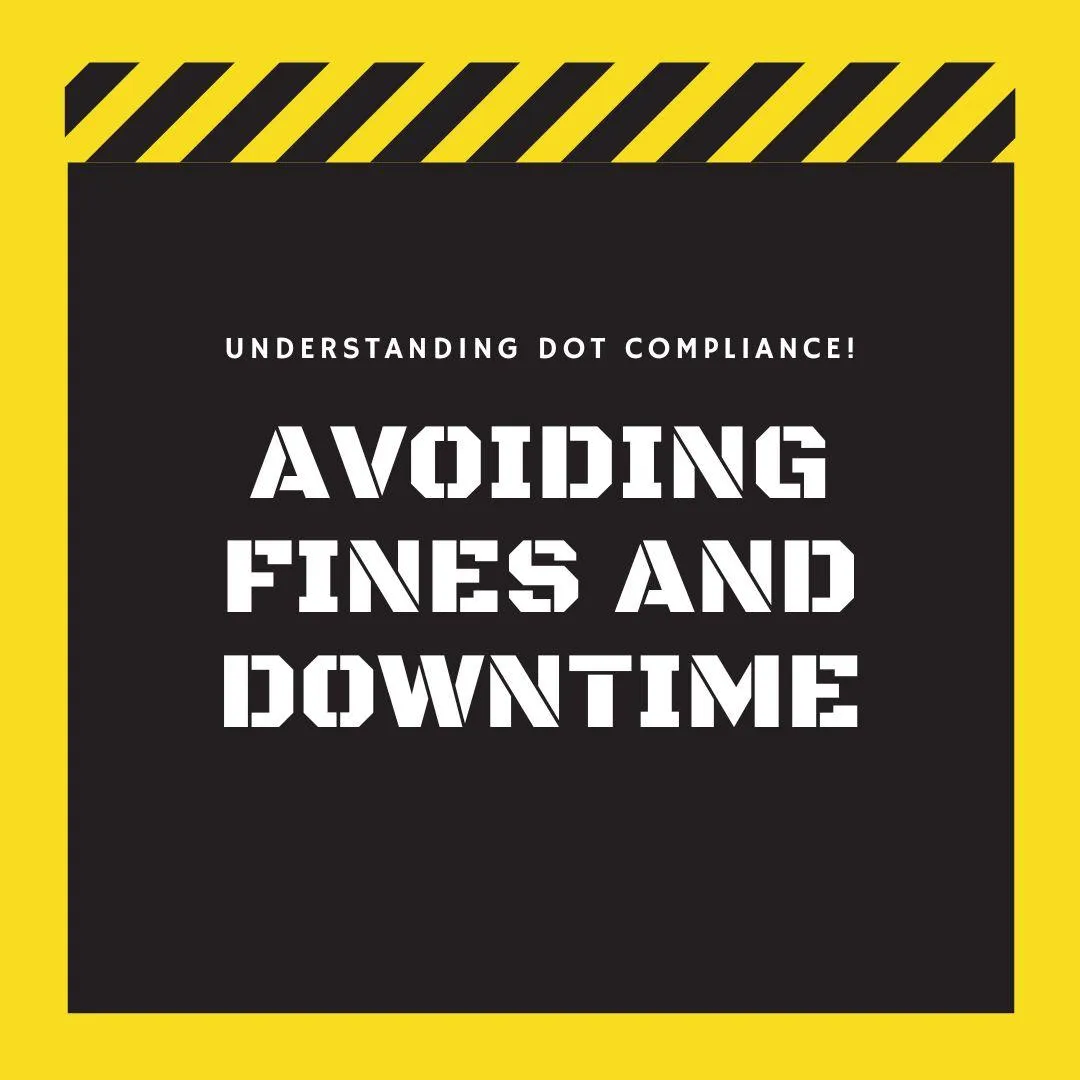


Industry News
Industry News

Understanding DOT Compliance: Avoid Fines and Downtime
Compliance with Department of Transportation (DOT) regulations is essential for dump truck operators to avoid fines and operational disruptions. Here’s an expanded guide on how to ensure effective compliance.
1. Regular Inspections
Importance of Inspections
Regular inspections are vital for maintaining vehicle safety and adhering to DOT maintenance standards. Operators should conduct pre-trip inspections to check critical components such as:
- Brakes: Ensure they function properly to prevent accidents.
- Lights: Verify that all lights are operational for visibility.
- Tires: Check for adequate tread and proper inflation to enhance traction and safety.
- Fluid Levels: Monitor oil, coolant, and other fluids to prevent mechanical failures.
Conducting these inspections proactively helps identify issues before they escalate into major breakdowns or accidents during operations.
2. Maintain Records
Documentation Practices
Accurate record-keeping is crucial for demonstrating compliance during audits by DOT officials. Operators should maintain detailed logs that include:
- Driving Hours: Document hours of service to comply with regulations.
- Maintenance Schedules: Keep records of all maintenance performed on vehicles.
- Inspection Reports: Log results from both pre-trip inspections and any additional checks.
- Incident Reports: Record any accidents or incidents that occur, which can help in evaluating safety protocols.
These records not only support compliance but also enhance transparency and accountability within operations.
3. Training Programs
Driver Education and Compliance
Investment in comprehensive training programs for drivers is essential. These programs should focus on:
- Regulatory Requirements: Ensure drivers understand DOT regulations pertinent to dump truck operations, including weight limits and load securement.
- Safety Protocols: Teach safe driving practices and emergency procedures.
- Vehicle Operation Skills: Provide hands-on training for operating heavy trucks safely.
Training ensures that all staff members recognize the importance of adhering to guidelines, which minimizes risks associated with violations that could lead to fines and penalties.
Additional Considerations
Understanding Local Regulations
Each state may impose additional regulations affecting dump truck operations, such as specific weight limits or axle load requirements. Operators should familiarize themselves with these local laws and regularly review them to maintain compliance across jurisdictions.
Implementing Compliance Programs
Developing a structured compliance program can significantly enhance adherence to DOT regulations. This includes creating written policies addressing each regulation, conducting periodic internal audits, and assigning dedicated compliance officers.
The Role of DOT Numbers
For commercial dump truck operators, obtaining a DOT number is mandatory if the vehicle meets certain criteria (e.g., gross weight rating over 10,001 pounds). This number serves as an identifier for monitoring safety performance and ensuring regulatory compliance.
By prioritizing these strategies like regular inspections, thorough record-keeping, and robust training programs, dump truck operators can effectively minimize risks associated with fines and operational disruptions while upholding their reputation for reliability and professionalism among clients. The NDTA provides a variety of educational initiatives aimed at fostering a skilled workforce in the dump truck industry.

Understanding DOT Compliance: Avoid Fines and Downtime
Compliance with Department of Transportation (DOT) regulations is essential for dump truck operators to avoid fines and operational disruptions. Here’s an expanded guide on how to ensure effective compliance.
1. Regular Inspections
Importance of Inspections
Regular inspections are vital for maintaining vehicle safety and adhering to DOT maintenance standards. Operators should conduct pre-trip inspections to check critical components such as:
- Brakes: Ensure they function properly to prevent accidents.
- Lights: Verify that all lights are operational for visibility.
- Tires: Check for adequate tread and proper inflation to enhance traction and safety.
- Fluid Levels: Monitor oil, coolant, and other fluids to prevent mechanical failures.
Conducting these inspections proactively helps identify issues before they escalate into major breakdowns or accidents during operations.
2. Maintain Records
Documentation Practices
Accurate record-keeping is crucial for demonstrating compliance during audits by DOT officials. Operators should maintain detailed logs that include:
- Driving Hours: Document hours of service to comply with regulations.
- Maintenance Schedules: Keep records of all maintenance performed on vehicles.
- Inspection Reports: Log results from both pre-trip inspections and any additional checks.
- Incident Reports: Record any accidents or incidents that occur, which can help in evaluating safety protocols.
These records not only support compliance but also enhance transparency and accountability within operations.
3. Training Programs
Driver Education and Compliance
Investment in comprehensive training programs for drivers is essential. These programs should focus on:
- Regulatory Requirements: Ensure drivers understand DOT regulations pertinent to dump truck operations, including weight limits and load securement.
- Safety Protocols: Teach safe driving practices and emergency procedures.
- Vehicle Operation Skills: Provide hands-on training for operating heavy trucks safely.
Training ensures that all staff members recognize the importance of adhering to guidelines, which minimizes risks associated with violations that could lead to fines and penalties.
Additional Considerations
Understanding Local Regulations
Each state may impose additional regulations affecting dump truck operations, such as specific weight limits or axle load requirements. Operators should familiarize themselves with these local laws and regularly review them to maintain compliance across jurisdictions.
Implementing Compliance Programs
Developing a structured compliance program can significantly enhance adherence to DOT regulations. This includes creating written policies addressing each regulation, conducting periodic internal audits, and assigning dedicated compliance officers.
The Role of DOT Numbers
For commercial dump truck operators, obtaining a DOT number is mandatory if the vehicle meets certain criteria (e.g., gross weight rating over 10,001 pounds). This number serves as an identifier for monitoring safety performance and ensuring regulatory compliance.
By prioritizing these strategies like regular inspections, thorough record-keeping, and robust training programs, dump truck operators can effectively minimize risks associated with fines and operational disruptions while upholding their reputation for reliability and professionalism among clients. The NDTA provides a variety of educational initiatives aimed at fostering a skilled workforce in the dump truck industry.

Contact Details
Our Hours
9:00 AM – 5:00 PM
Monday – Friday
Location
504 Fair St SW Atlanta, GA 30313
Contact Us
Phone: (404) 618-1213
Email: [email protected]